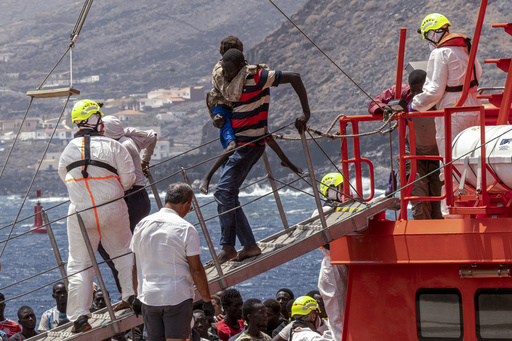Spain’s Prime Minister Pedro Sánchez is embarking on a three-day trip to West Africa to address the increasing number of people making the dangerous journey by boat to the Canary Islands. The Spanish archipelago, located near the African coast, has witnessed over 22,000 arrivals since January, more than double compared to last year. Many migrants and refugees use the Canary Islands as a stopover before attempting to reach mainland Europe.
Sánchez’s tour begins in Mauritania, then continues to Gambia and Senegal, as these three countries are common starting points for overloaded boats operated by smugglers. Among those taking the risky Atlantic route to the Canaries are Malian refugees escaping conflict, as well as young people from Senegal, Mauritania, and other West African nations in search of better job prospects abroad. There has been a notable increase in unaccompanied minors and children arriving in the Canary Islands, putting a strain on local authorities responsible for their welfare.
Spanish authorities anticipate a further surge in arrivals during the autumn when sea conditions are more favorable. To address this challenge, Sánchez plans to establish bilateral agreements with African leaders and enhance collaboration between Spanish and local security forces to combat human trafficking. Spain will also expand its circular migration program permitting temporary work for migrants, particularly in agriculture. Furthermore, the Spanish government aims to announce long-term investments and business partnerships in development, connectivity, and education to tackle the root causes of migration.
This marks Sánchez’s second visit to Mauritania in 2021. In February, he visited the nation with European Commission President Ursula von der Leyen and pledged 210 million euros to support efforts to reduce migration. Known for its stability in the turbulent Sahel region, Mauritania is home to around 200,000 Malian refugees along its border.


